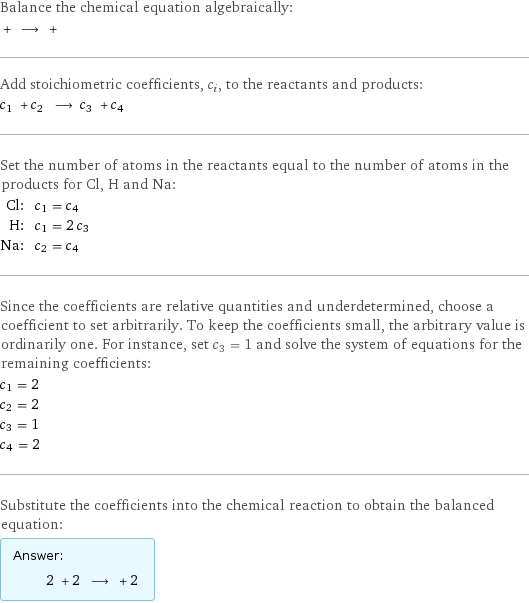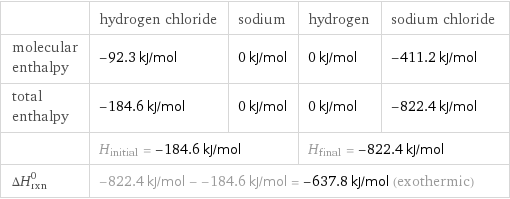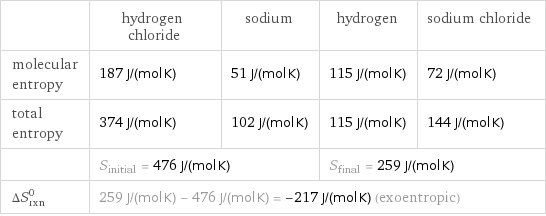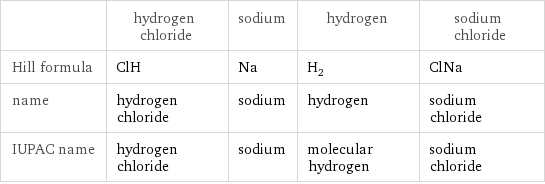Input interpretation

hydrogen chloride + sodium ⟶ hydrogen + sodium chloride
Balanced equation

Balance the chemical equation algebraically: + ⟶ + Add stoichiometric coefficients, c_i, to the reactants and products: c_1 + c_2 ⟶ c_3 + c_4 Set the number of atoms in the reactants equal to the number of atoms in the products for Cl, H and Na: Cl: | c_1 = c_4 H: | c_1 = 2 c_3 Na: | c_2 = c_4 Since the coefficients are relative quantities and underdetermined, choose a coefficient to set arbitrarily. To keep the coefficients small, the arbitrary value is ordinarily one. For instance, set c_3 = 1 and solve the system of equations for the remaining coefficients: c_1 = 2 c_2 = 2 c_3 = 1 c_4 = 2 Substitute the coefficients into the chemical reaction to obtain the balanced equation: Answer: | | 2 + 2 ⟶ + 2
Structures

+ ⟶ +
Names

hydrogen chloride + sodium ⟶ hydrogen + sodium chloride
Reaction thermodynamics
Enthalpy

| hydrogen chloride | sodium | hydrogen | sodium chloride molecular enthalpy | -92.3 kJ/mol | 0 kJ/mol | 0 kJ/mol | -411.2 kJ/mol total enthalpy | -184.6 kJ/mol | 0 kJ/mol | 0 kJ/mol | -822.4 kJ/mol | H_initial = -184.6 kJ/mol | | H_final = -822.4 kJ/mol | ΔH_rxn^0 | -822.4 kJ/mol - -184.6 kJ/mol = -637.8 kJ/mol (exothermic) | | |
Entropy

| hydrogen chloride | sodium | hydrogen | sodium chloride molecular entropy | 187 J/(mol K) | 51 J/(mol K) | 115 J/(mol K) | 72 J/(mol K) total entropy | 374 J/(mol K) | 102 J/(mol K) | 115 J/(mol K) | 144 J/(mol K) | S_initial = 476 J/(mol K) | | S_final = 259 J/(mol K) | ΔS_rxn^0 | 259 J/(mol K) - 476 J/(mol K) = -217 J/(mol K) (exoentropic) | | |
Chemical names and formulas

| hydrogen chloride | sodium | hydrogen | sodium chloride Hill formula | ClH | Na | H_2 | ClNa name | hydrogen chloride | sodium | hydrogen | sodium chloride IUPAC name | hydrogen chloride | sodium | molecular hydrogen | sodium chloride